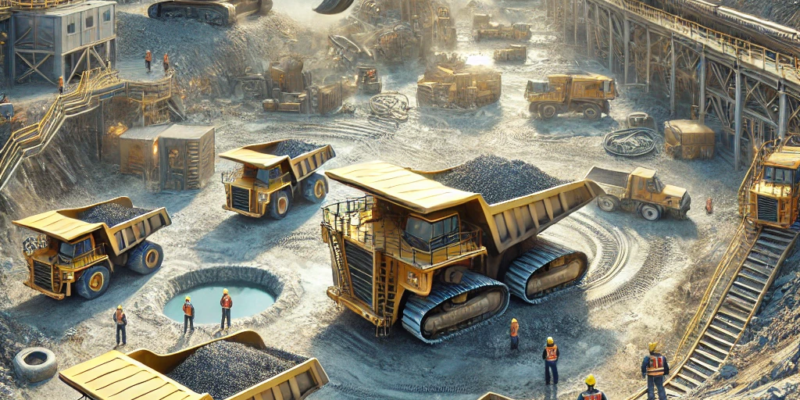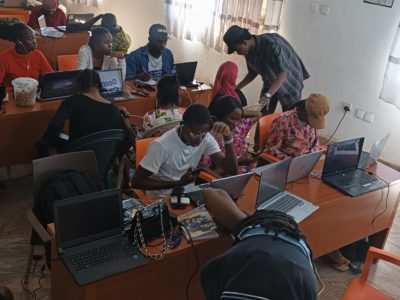We scroll through our phones daily, watching videos or chatting with friends. But have you ever wondered about the elements that power that tiny device in your hand? The answer is battery, most likely powered by lithium. The same applies to electric cars, laptops, and renewable energy systems. The flip side is that Africa has great lithium deposits and rare earth minerals. But the world is just beginning to notice.
RELATED:The South Africa Manufacturing Show has announced the honorees for the esteemed Manufacturing 50 Awards
Why Lithium and Rare Earth Minerals Matter
Now, lithium is the rising star in battery technology. The world is moving toward electric cars, renewable energy, and anything that cuts pollution in every possible way. What is vital to the whole process? Batteries that store energy efficiently, last long, and charge fast. Lithium comes in at this point. It is light, stores energy like a champion, and powers everything from Teslas to solar storage systems.
Then there are rare earth minerals. They may not sound as glorious, but they are equally important. Minerals like neodymium, dysprosium, and terbium are the backbone of modern technology. They are used in magnets for wind turbines, electric vehicles, smartphones, and even military equipment. Without them, half the technology we rely on day in and day out wouldn’t exist.
Africa’s Untapped Treasure Chest
The good news is that Africa is endowed with lithium and rare minerals. Zimbabwe, Namibia, the Democratic Republic of Congo, and Mali have large lithium deposits. Zimbabwe alone is host to some of the largest-known lithium deposits. In Namibia, a mine called Uis already produces lithium. Another huge lithium deposit remains untapped in the DRC. Aside from lithium, the country has lots of cobalt.
Rare earth minerals? Africa has plenty of them. Burundi, Madagascar, Malawi, and South Africa are all stuffed with them. One of the biggest discoveries occurred in Angola, where large rare earth deposits have been identified and are enough to disrupt the whole chain.
The Global Lithium Rush and Where Africa Fits In
That’s where it becomes interesting. The whole world wants lithium and rare earth minerals, but at this point, they are coming from just a few regions. China, Australia, and South America are the current players. But there is more. China dominates the rare earth mineral business. According to the UN, China controls more than 70 percent of global output. That’s where it gets problematic, as it puts the country into a monopoly over price and supply, as in the case of China.
Shifting to Africa, however, with its awe-inspiring resources, it could supply the world, thus breaking China’s monopoly and providing economic boosts in African countries. However, the catch is that most of these minerals are exported in their raw state, thus not getting their actual cut from the economy. Instead of digging lithium and taking it out of Africa, processing it, manufacturing lithium-ion batteries in Africa, and putting Africans into a great position in the electric vehicle market, that is.
Environmental Challenge: Can Africa Get It Right?
Here lies the environment’s greatest enemy: mining can wreak havoc if used improperly. Lithium extraction uses too much water, which can cause water shortages and degradation of land; the examples are endless, with the Atacama Desert in Chile standing as one of the brightest examples. Lithium mining has drained local water reserves and caused harm to local communities.
Africa has a chance to do things differently. Countries like Namibia and Zimbabwe are already discussing setting environmental standards for lithium mining. If African nations enforce strict sustainable mining practices, they can avoid the mistakes made in other parts of the world. Instead of selling raw minerals, they can focus on clean processing, battery recycling, and green energy-powered mining operations.
The Future: Can Africa Lead the Green Revolution?
So, what’s next? The world is shifting toward green energy, and Africa has the raw materials to fuel this transition. But raw materials alone aren’t enough, what matters is who controls them and how they are used. If African nations build local industries around lithium and rare earth minerals, they could become major players in the global economy rather than just supplying other countries.
Here’s what Africa needs to do:
Process the minerals locally
Instead of exporting lithium and rare earth minerals, Africa should refine and manufacture batteries on the continent.
Invest in sustainable mining.
Countries must learn from mistakes made elsewhere and push for cleaner, water-efficient extraction methods. For any gamer reading this, you can promote sustainability by gaming at https://22bet.co.zm/casino. You can also patronize local businesses like it that promote sustainable interests.
Build Partnerships That Benefit Africa
African governments should negotiate productive deals instead of letting foreign companies take control. Cutting deals is not enough. The deals must span the mining and processing industries. This will enhance the continent’s technical and mining capabilities and stimulate the mining industry.
Train local workers
Mining and battery production require skilled workers. Investing in education and training programs will ensure that Africans benefit from the industry’s growth.
Conclusion
Lithium and rare earth minerals are among the most sought-after commodities these days. Africa needs every resource to become a frontrunner in the green energy revolution. We are discussing implementing the right policies, smart investments, and sustainability. If done rightly, this is the only chance for Africa to mine resources and become the future clean energy enabler.

































